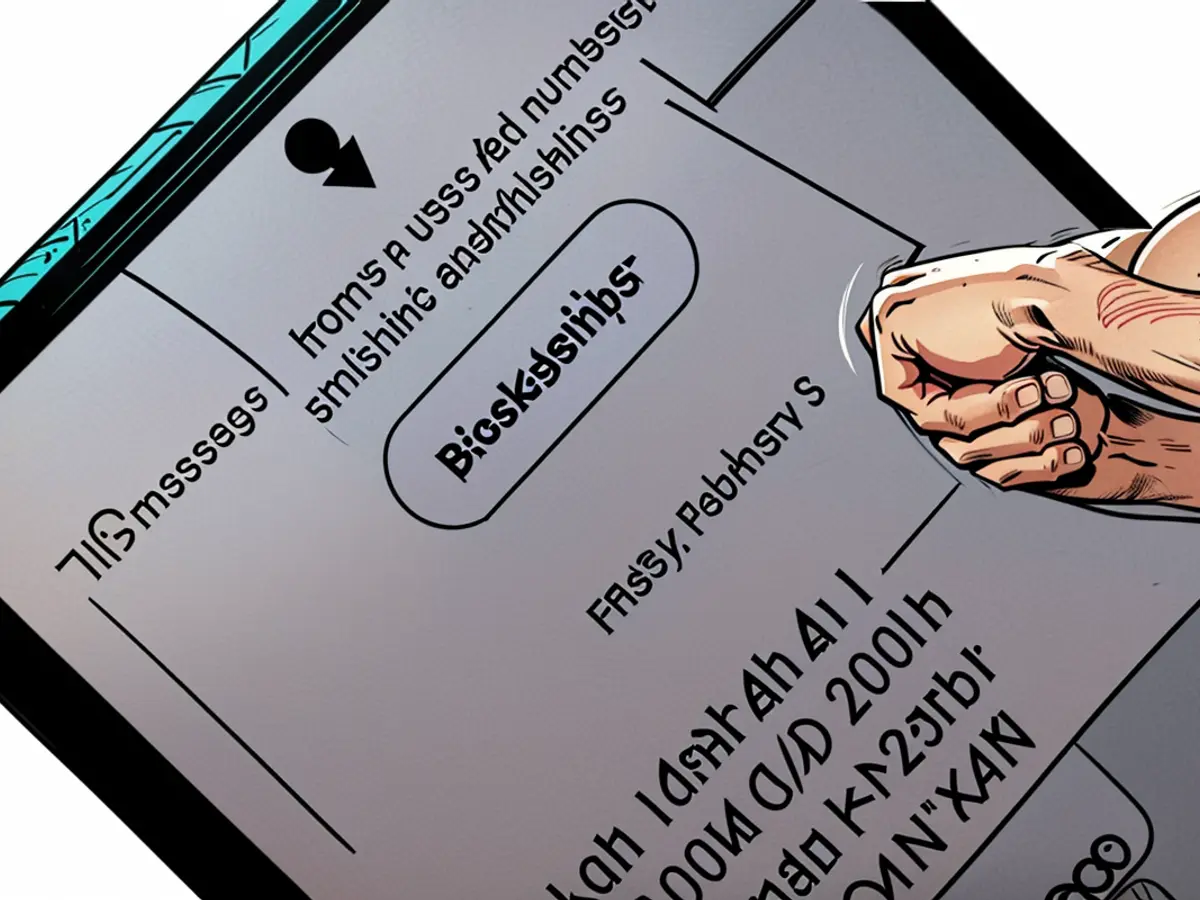Six Indicators of Grammatical and Language Errors in Deceptive Emails and Texts to Identify
Constantly encountering attempts to trick you is a sad reality of modern existence. These attempts can range from trying to steal your financial info, impersonating your identity, or even engaging in a ludicrous romance scam. Scam messages and emails have become so prevalent, they're nearly invisible.
You're most susceptible when you're carefree, which is why an alarming 15% of Americans admit that someone in their household has been duped by a scam, with 8% admitting they themselves have fallen victim. Spotting these scams isn't always easy, but scammers can expertly mimic the appearance of genuine bank or government emails. They can make their attempts to extract money from you appear official and believable.
Regardless of their graphic wizardry, email spoofing, and link disguising, there are often telltale signs that you're dealing with a scam. Here are seven grammatical indicators often found in fraudulent communications, from texts to emails.
Appalling grammar
One of the most obvious giveaways in many scam emails and texts is atrocious grammar throughout. Genuine corporate or government communications should be well-written, so anything that appears to be official but reads like it was produced by Google Translate is a clear warning sign.
Poor grammar can sometimes be intentional. It's speculated that scammers use it to eliminate those who pay attention. If you notice the poor grammar, you're likely too smart for them to target. However, this is not always the case. Sometimes, poor grammar is a result of the writer's incompetence in English composition. If the text is confusing, it might be a sign that you're dealing with an imposter.
"Would you kindly"
The phrase "would you kindly" in an email or text requesting action or a click is a common marker of a scammer, as it suggests the person behind the message is based overseas. "Kindly" is frequently used in other parts of the world to replace "please." While "kindly" is not incorrect in itself, it's unusual for an American to use it, especially if combined with words like "do the needful."
Misplaced punctuation and capitalization
Incorrect capitalization and punctuation are another common grammar indicator of a scam. Misspelled words are a sign that the text has been copied from a scam template that's been modified to fit the specific details of this particular scam. Incorrect punctuation in unusual places or its absence is also a red flag. While it's true that people might make mistakes when typing quickly, consider whether an IRS agent demanding payment through Apple gift cards would really act so hurriedly.
Erroneous currency symbol placement
Another grammatical clue to a scam message is the use of the dollar sign in the wrong place. In the US, the dollar sign typically comes before the numerals, but in many other countries, it's placed after. Seeing $500 instead of $500 is a clue that you should scrutinize the message further before buying the gift cards.
Using "dear" in an official email
Fraudulent texts and emails often use a generic greeting instead of your actual name, as they're simply pretending to be your bank or other entity that should know who you are. They frequently use the term "dear" in affectionate phrases like "My dear," which can create a sense of intimacy (particularly in romance scams), but may also be a sign that the writer is a non-native English speaker. While "dear" isn't incorrect, it's out of place in a serious email.
Saying "datebook" instead of "calendar"
Other common words that suggest the email or text was written by someone living overseas and unlikely to be from your local law enforcement demanding payment of traffic tickets via Bitcoin include "calendar" and "schedule." Some countries use terms like "diary" or "datebook" instead of "calendar," but this is unusual in the US. This should prompt you to reread the email or text and look for further scam indicators.
Omitting words
Another frequently overlooked scam indicator is missing words. Incorrect use of pronouns, verbs, and prepositions can indicate that the email or text was not written by a native English speaker, which may mean it's a scam.
Many fraudulent messages are dispatched by individuals who might not have a strong command over the English language, making omitted words effortlessly ignorable, particularly those labeled as "function words." These words serve to join other words, shaping sentences and giving them meaning. Fraudulent messages frequently disregard these crucial connections in pivotal positions that can be effortlessly skipped over in a hasty read, generating phrases such as "Contact main office" (missing "the"), which might seem acceptable in haste, but appears odd if you take a moment to ponder.
A common tactic scammers employ across various scenarios is to exploit people's faith and devotion by incorporating religious terms and specific religions into their messages. Just like the use of terms like "dear," this approach is designed to circumvent your defenses by suggesting that they are virtuous or spiritually inclined by sharing or feigning your beliefs.
In an email's context, mentioning religion or faith isn't inherently a warning signal – it depends on the context. A message from your clergyman that references religion is standard procedure. However, a message from the local Lottery Commission declaring that Bill Gates chose your email to win a $10 million shouldn't contain religious references in every other sentence.
To reinforce the importance of detecting scams, remember that poor grammar in a text or email might be intentionally used by scammers to weed out vigilant individuals. Moreover, using the phrase "would you kindly" in a request for action can be a red flag, indicating an overseas origin of the message.








